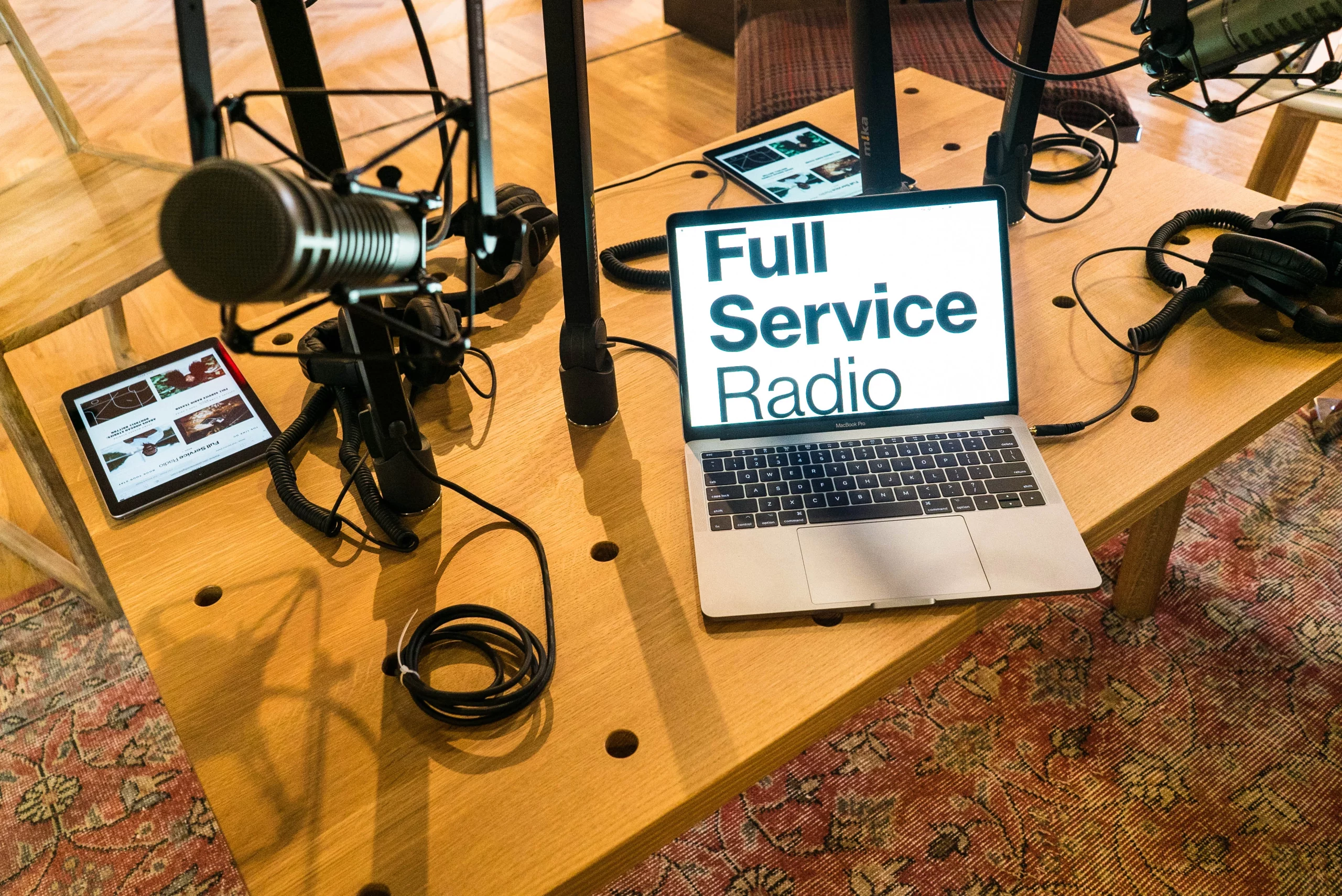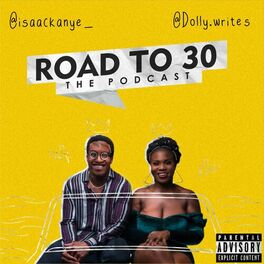Aside from starting a blog or YouTube channel, many Nigerians are now delving into podcast creation. It has become a hub to earn money online and reach out to a larger audience
Depending on your goals, starting a podcast can be fun, engaging, and lucrative. If you want to be the best at it, all you have to do is to follow this step-by-step guide.
There are a lot of podcast channels in Nigeria, so you have to do it the right way if you want make the best of it.
Table of Contents
What is a Podcast?
A podcast is an audio-only episodic series that features one or more hosts talking about a particular topic. It’s a recorded audio file that an audience can subscribe to and download to their smartphone or tablet.
They can listen to it at their leisure. Although the podcast is often provided for free, most podcasters want to get some financial return for their efforts.
Step-By-Step Guide on How to Start A Podcast for Beginners
-
Define your goals
Why do you want to start a podcast? It’s important to know why, even if it’s to have fun with friends. Most people start podcasting to generate business leads, while others are to be recognised as industry leaders.
Podcasting has a lot of benefits for brands and businesses, but it’s important to be realistic about your goals. While some podcasters shoot to fame, most have a small target audience that they build over time.
-
Choose a name
Your podcast name is a core part of your brand. It makes a solid first impression on listeners and sets the tone for your podcast.
There are many big names in the Nigerian podcast industry such as, ISaidWhatISaid (ISWIS), #WithChude, Tea With Tay Podcast, Road to 30, So Nigerian, F&S Uncensored, etc. These names reflect what the podcasts is all about.
Choose a name that describes your show, and remember that people need to be able to find your podcast when searching for information about your topic.
-
Pick a podcast theme or topic
You should feel excited to discuss and research your podcast topic regularly. The more you enjoy your topic, the less likely you’ll experience podfade (this means when you stop your podcast suddenly without notice).
Once you have some ideas, do market research to survey the competition in your genre.
Search your show’s topic in Apple Podcasts. Then, listen to a few episodes and ask yourself what you could do differently.
There’s always a unique angle or perspective to offer.
To test out your podcast concept, try developing ten episode ideas. If ideas don’t come easily, you might want to change topics.
-
Choose a niche
You attract a more specific and engaged audience when zeroing in on a niche. Conversely, podcasts that appeal to a broad audience can reach fewer people.
People are more likely to recommend a niche podcast to a friend than a generic one.
To make your podcast niche, focus on a sub-category or sub-demographic. Drill down on what makes your podcast different. What unique perspective can you bring to your podcast’s topic?
-
Choose your podcast format
When you have achieved the above steps, choose your format. How do you want your podcast to be structured? Will it be a monologue or interview format?
- The Solo Podcast
Here, you can use any podcast format that suits you. However, your format should complement your podcast and feel sustainable.
Having a solo podcast connotes that the podcast is exclusively yours, so you don’t need anyone to record episodes with you.
Do what excites you. You can also invite podcast guests sometimes to spice things up.
- The Co-hosted Podcasts
If you choose to have co-hosts, family members, friends, or colleagues, try to keep your group small. Podcasting with more than five people makes scheduling a challenge.
Keep in mind that some shows require more production than others. For instance, fiction podcasts usually require more editing than interview podcasts.
Read Also: How to Create A Content Calendar (With Tools and Templates)
- Interview Podcasts
This podcast format allows you and your audience to learn from various people from different fields and backgrounds. You will need to find and approach potential guests and schedule interviews.
With this, you need to hone your interviewing skills and do a lot of practice. You should also start with starters like you and move up gradually.
A good thing about this podcast is it drives traffic, as there is the probability that the audience of the people you invite will, by default, want to listen to the podcast interview.
Other types of podcast you can try out includes: scripted non-fiction, news recap, and educational podcasts.
Read Also: Interior Decoration Ideas for Your Home Workspace
-
Setup podcast recording and editing equipment

Podcast recording euipment
To start with, you will need instruments for recording your podcast so your voice will sound professional. Then, you need a computer with a USB microphone or a good phone and access to the internet, so you don’t have to buy expensive equipment to have good audio while starting.
As you grow, you can always get better equipment for setup.
A good podcast mic enhances your audio quality and makes editing easier. Less background noise in your recording means less editing on the backend.
USB microphones are less expensive and plug directly into your computer. You can also run it through an interface if you record with multiple people. USB mics are affordable, practical, and sound great. This mic is the best option for the majority of podcasters.
- Choose your podcast recording equipment
The recording equipment are very important in podcast. Once you have the setup, it becomes easier to record and upload your content. What are the recording equipment you need?
- Computer
Computer is essential because it serves as your digital audio workstation. You can record and editing on it to produce your episodes. It is recommended that you purchase a Mac or PC, it can be either a desktop or laptop. When you purchasing it, consider the memory space (500gb is good), processor and type of USB ports. For beginners, you should get a computer of 8GB of Random Access Memory.
- Microphone
A microphone for podcasting is the most critical equipment because it affects your sound quality. A good microphone will save you time in post-production. Now, the difference between a XLR and USB microphone is, XLR microphone has a 3 prong connection and it is connected to a mixer and computer while the USB type is connected directly to the computer via a USB port.
Our best microphone recommendations are; Shure MV7, Blue Yeti, Rode PodMic, Shure SM7B, Rode Procaster.
- Headphones
This is an essential equipment for podcasting. It allows you to monitor and adjust the sound quality when during recording sessions. Our headphone recommendations are: Audio-Technica ATH-M30x, Shure SRH440, and Audio-Technica ATH-M30x.
Other equipment include; camera (optional), pop filter, mic arm, a shock mount, and lighting.
- Editing Your Podcast
Once you are done with your podcast, you will have to edit out the mistakes, stitch together different audio clips, add music, etc.
You can perfectly do this by using the editing software mentioned above. If you cannot handle the editing yourself, you can outsource it.
But, the easiest podcast editing software you can use is Alitu. Alitu allows to record your audio either solo or remote. It will take your raw recording, balance the audio levels and clean the processing for you. To cap it all, it will create transcription for your audio to make it accessible for all.
Alitu’s pricing is $32 per month, there is a 7-day trial available.
There are others such as, Garage band, Adobe Audition, and Audacity. They all have free editing software you should try.
Adobe Audition is equipped with a broad range of audio recordings and editing tools that enables users to create soundtracks for a different type of projects.
Garage band is free for now, and it is compatible with Mac OS and iOS.
Also, remember that adding music throughout your podcast is not compulsory. You may choose to add some at the beginning and the end.
-
Design your podcast cover
Having beautiful cover art is very vital to distinguish your podcast from numerous ones on different podcast platforms. You want to make your cover stand out and be unique.

An example of a podcast cover (Road to 30)
There are resources you can use to design your podcast cover such as, Canva, DesignLab Studio, Adobe Photoshop, etc. You can also have the cover designed by a freelancer on Fiverr or Upwork.
-
Choose a hosting site for your website
Like blogging, a podcast hosting account helps you store your audio and allow people to listen, download and subscribe to your podcasts. Some of the best website hosting for podcasts now are Anchor, Vimeo, Buzzsprout, Libsyn, Captivate, Podbean, and Transistors, to mention a few.
You can do many things to promote your podcast. You must submit to streaming platforms, you can use Apple Podcasts, Spotify, Google podcasts, etc. You should post on your website if you have one. You can also tell your friends and family members about it.
Read Also: How to Start A Music Record Label in Nigeria
How Much Do Podcasters Make?
When your podcast starts getting popular, you can start advertising for organisations, businesses, etc. You can put this at the middle or end of your podcast.
Another way to make money podcasting is by offering consultancy services to people on podcasting. You can charge as far as ₦100,000 above, depending on the firm you’re consulting for. Advertisement fees depends on you, many podcasters earn around N200,000. Getting sponsors for each podcast is also. way of earning , the sponsors can pay you to insert their ads in your podcast.
Conclusion
Anyone can start a podcast, regardless of their experience level. All you need is a genuine interest in your topic and something valuable to offer listeners!
Join our WhatsApp community to be a part of our Insightful conversations. You can subscribe to our YouTube Channel to watch our videos on life and business transformation.
About Author
-
Adedokun Boluwatife is a content, Ghostwriter, and Medical student.
She uses storytelling to write compelling articles and books. Writing is the greatest instrument to share what she knows with the world. Proficiency is a skill she always wields.
Latest entries


 Business InsightsFebruary 12, 2024How to do Twitter Advanced Search and What it Means for Your Nigerian Business
Business InsightsFebruary 12, 2024How to do Twitter Advanced Search and What it Means for Your Nigerian Business

